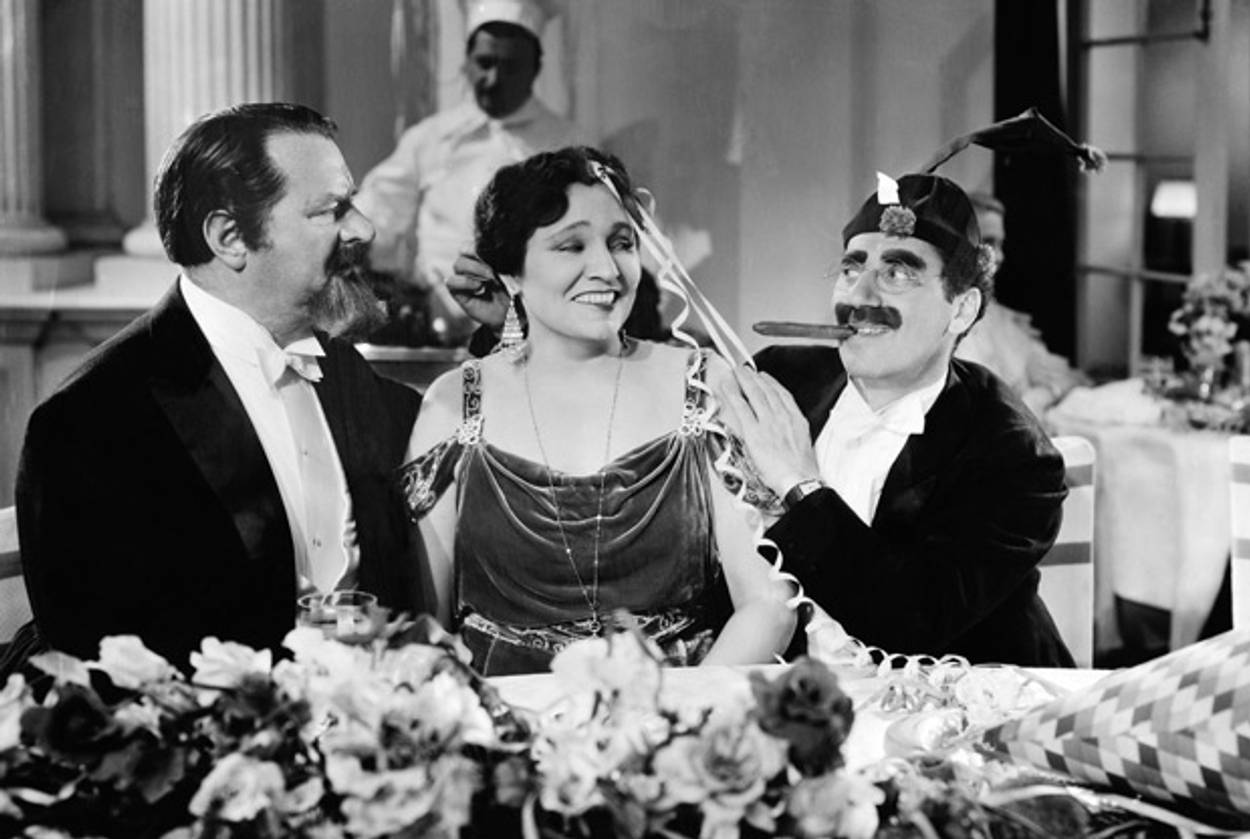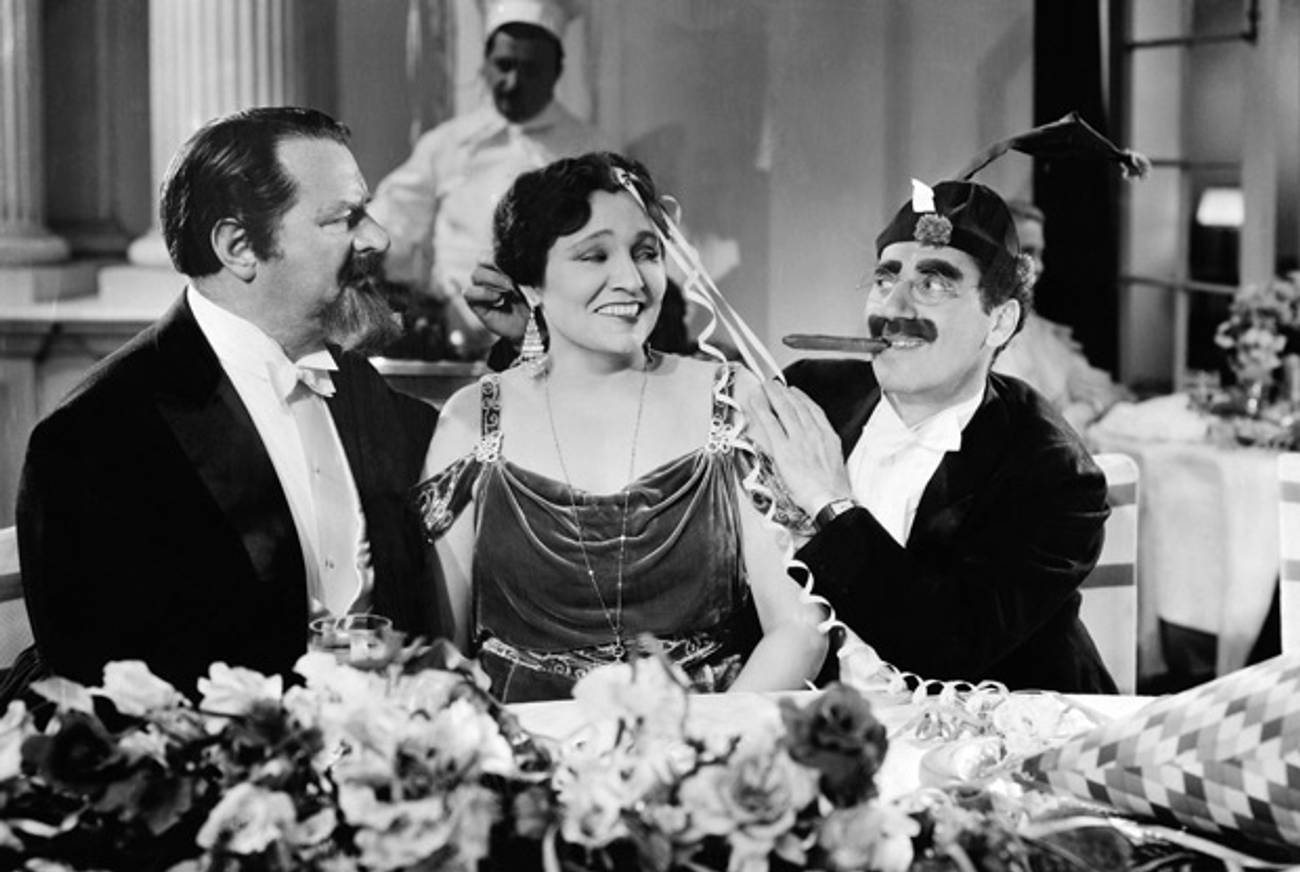No. 3: A Night at the Opera
The Marx Brothers’ best film takes absurdity to new heights




1935, dir. Sam Wood. Emerging in the first years of sound pictures as a whirlwind of comic mania, the Marx Brothers were—and remain—many Americans’ introduction to the antic genius of Jewish vaudeville. In part through Chico’s ethnic role-playing, they included the entire story of American assimilation within their scope, and then made it Jewish. And Groucho, who after Jesus and Einstein may have the third-most iconic Jewish face in history, is the definition of the wise-cracking, street-smart New York Jew; without Groucho there is no Woody Allen. But why A Night at the Opera? It is not as beloved as the first five Marx Brothers films; it isn’t as funny as the funniest of these, such as the fifth, Duck Soup. It doesn’t have original songs by the great Irving Berlin, as does the first, The Cocoanuts. But it is the best and the most Jewish, and it’s largely thanks to one man: Irving Thalberg. The brilliant producer was a bridge-playing friend of the inveterate gambler Chico, and signed the Brothers to MGM over the objections of studio head Louis B. Mayer, who didn’t want attention drawn to the fact that the entire town, himself included, was populated with Jewish immigrants.
For many, this film’s greatest set-piece is the stateroom scene, in which 15 people—a tenor, two maids, a manicurist, an engineer, the engineer’s assistant, a random girl, another maid, four waiters carrying God knows how many hardboiled eggs, and the Brothers—fit in a tiny room aboard a ship until Margaret Dumont’s character opens the door and they all tumble out (paging Herr Doctor). But really, the climax is the climax. Chico and Harpo have replaced a page of Verdi’s score with “Take Me Out to the Ballgame” (by Albert Von Tilzer, a Jew). The orchestra plays the overture for more than a minute—without Thalberg, this would have been skipped over—the page is turned, and the iconic anthem begins. Harpo and Chico stand up in the orchestra pit and start playing catch; Groucho bursts into an aisle and hawks peanuts. There is no reason why any of this should be happening. We are finally back to the summa of Marx Brothers absurdity, and because, thanks to Thalberg, we’ve been waiting for it for almost the whole movie, it is that much more pleasurable. And meaningful: The gates of the Metropolitan Opera itself have been stormed, and we don’t care if we never get back.
Marc Tracy is a staff writer at The New Republic, and was previously a staff writer at Tablet. He tweets @marcatracy.